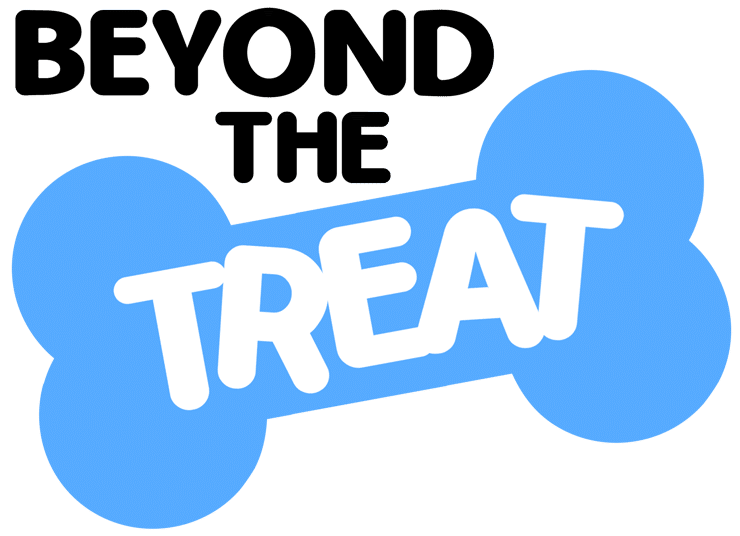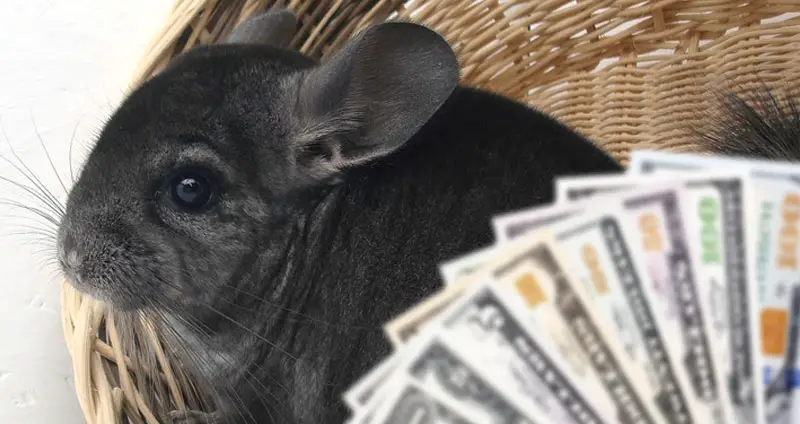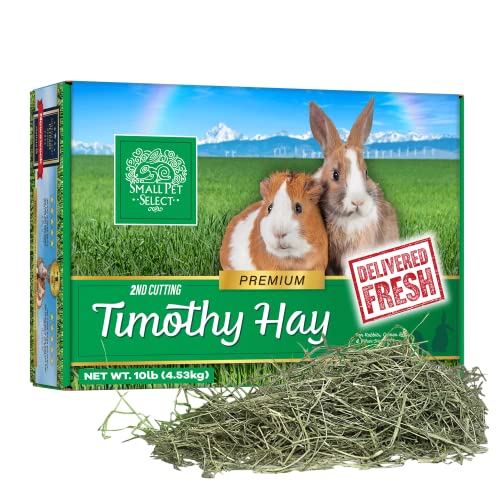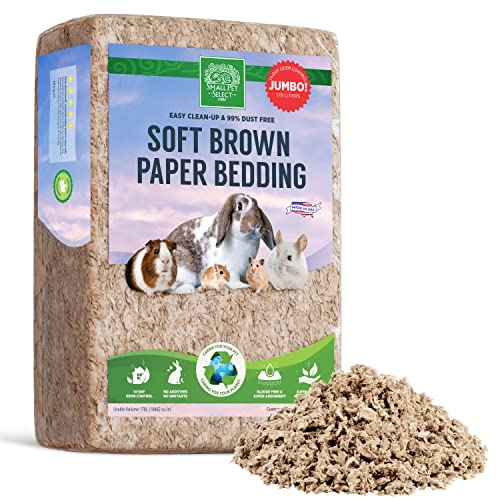Chinchillas are pretty bizarre and obscure creatures that not too many people are knowledgeable about. They are also adorable, though, so quite a few people are interested in owning a chinchilla as a pet.
However, these potential owners usually have a lot of questions regarding chinchilla ownership. One of the first questions that prospective owners ask is: How much does a chinchilla cost?
Are these creatures attainable for anybody that wants one, or are they too expensive to where they’re limited in who can own them?
Table of Contents
How Much Does A Chinchilla Cost?
A chinchilla typically costs between $150 and $350 for a healthy juvenile/adult. However, prices can range from under $100 to over $400 depending on the breeder and type of chinchilla.
There are other costs of chinchilla ownership that need to be considered, too.
Essential, initial costs are typically around $400, while ongoing costs of ownership are around $200 to $300 per year.
So, chinchillas aren’t extremely expensive pets, but they definitely aren’t the cheapest that you can buy.
Below, we’ve laid out the costs of chinchilla ownership more in-depth. This includes the purchase price of the chinchilla itself, as well as the enclosure and supplies needed to keep them happy and healthy.
Chinchilla Cost Breakdown
Product |
Initial Costs |
Yearly Costs |
| Chinchilla | $150 – $350 | |
| Cage | $100 – $200 | |
| Covered Shelter | $0 – $30 | |
| Dust Bath | $10 | |
| Food/Water Bowls | $20 – $30 | |
| Bed/Hammock | $15 – $25 | |
| Carrier | $15 – $30 | |
| Exercise Wheel | $100 | |
| Granite Stone | $5 – $15 | |
| Toys | $15 – $50 | $15 – $50 |
| Food | $120 – $150 | $120 – $150 |
| Treats | $10 – $20 | $10 – $20 |
| Bedding | $10 – $100 | $10 – $100 |
| Dust | $30 – $50 | $30 – $50 |
| Vet Visits | $0 – $100 | $0 – $100 |
| Other Medical Needs | $0 – $50 | $0 – $50 |
Cost Of Purchasing The Chinchilla Itself
The chinchilla itself is only a small portion of the total cost of a chinchilla, but it is still considerable. There isn’t a guideline that all chinchilla breeders and rescues follow, so prices can vary greatly.
These animals aren’t cheap, though, so be prepared to spend $200+ for a healthy chinchilla.
When it comes to chinchilla purchasing, or any animal for that matter, cheaper is almost never better. You shouldn’t seek out the cheapest chinchilla that you can find and call it a day, as those chinchillas are generally very neglected and unhealthy.
If you’re paying a bit more for a chinchilla, most of the time it’s because there was considerably more care that went into their well-being.
The general consensus is to never purchase a chinchilla from a pet shop. These chinchillas are almost never cared for properly and can come with a large amount of health problems.
Additionally, purchasing these chinchillas simply encourages these pet stores to continue their sub-par practices. Therefore, it’s best that you go to a reputable breeder to get your chinchilla.
To find a quality chinchilla breeder in your area, the MCBA website is an excellent place to start. The breeders in the MCBA directory genuinely care for their chinchillas and raise some great little pets.
While some breeders may be expensive, it’s not uncommon to see them selling chinchillas for as little as $150. Do your research before purchasing, as this is a very important aspect of chinchilla ownership.
Initial Chinchilla Costs
A chinchilla can’t just be thrown into a cage and be expected to thrive. There are several things that a chinchilla needs in order to live a happy and healthy life both inside of their cage and outside of it.
Fortunately, many of these items only need to be purchased once, as they’ll easily last your chinchilla a lifetime.
Cage Cost
When purchasing a cage for your chinchilla, you definitely don’t want to cheap out. Even if you are a very active chinchilla owner and let them out of their cage a lot, they’ll still be in it a considerable amount.
You must make sure that the cage can provide them with a comfortable and safe environment, especially when you’re not around to monitor your chinchilla.
Fortunately, our guide on the best chinchilla cages goes over exactly what a chinchilla needs in a cage and recommends some of the best on the market.
For a high-quality cage, expect to pay no less than $100, with the best ones being $200 or more. The cage must be strong enough to endure the abuse that a chinchilla would put it through, so the higher-quality the cage, the better.
Luckily, you likely won’t have to replace the cage, so it’s only a small cost in the grand scheme of things.
Covered Shelter Cost
While this isn’t an absolute necessity, adding one of these to your chinchilla’s cage is a great way to diversify their living space. Also called nesting boxes, these shelters provide chinchillas with a secluded area to hide out if they feel stressed or just want some alone time.
The shelters should be made of either fabric or a safe wood with nothing that could potentially harm a chinchilla.
Shelters are available from as little as $10 to as much as $30+. This shelter is one of the most popular ones available, and it easily provides a secure getaway for one or two chinchillas.
The only time that the shelter will need to be replaced is if your chinchilla chews through it.
Dust Bath Cost
A dust bath is an essential part of a chinchilla’s home. Chinchillas don’t bathe in water like many other animals. Instead, these creatures naturally roll around in dust to penetrate their fur and absorb oils and dirt, keeping their coat clean and healthy.
Giving your chinchilla access to a sturdy and adequately-sized dust bath is the main way that you’re going to keep your chinchilla clean and groomed.
Dust baths are not very technical things, meaning that they’re priced quite cheap. This bath is made of a sturdy plastic and does an excellent job keeping the chinchilla dust contained.
The bath itself should last a lifetime and only cost about $15 — it’s the actual chinchilla dust that will cost a bit more.
Food & Water Container Cost
Chinchillas do have some special requirements for their living environment, and their food and water containers are no exception. Chinchillas love to chew on plastic, so plastic bowls and water bottles need to be avoided at all costs.
Additionally, chinchillas eat a mixture of pellets and hay, meaning that you’ll need a quality hay feeder as well.
Poor quality food and water containers could be a health hazard, and it’s not too expensive to avoid the issue of them chewing on their bowls and bottles.
Many chinchilla owners opt to go with a wooden combo pellet bowl and hay rack such as this one. This most likely will have to replaced a couple of times, but it’s one of the best feeders that you can put in your chinchilla’s cage.
Your chinchilla’s water bottle should be glass to prevent chewing, too, so something like this water bottle should suffice.
Bed/Hammock Cost
Chinchillas sleep quite a bit, so their bed is a very important aspect of their cage. There are two kinds of beds that you can get for your chinchilla, which are either a hammock or a standard bed.
Chinchillas seem to prefer hammocks, especially if they’re covered, so it’s recommended that you get your chinchilla something like this.
You can also supply them with a bed on the bottom floor of their cage, as it’s great to give them several options. For this bed, you can either purchase a standard small pet bed or simply lay a fluffy towel down – both work great.
A chinchilla’s bed shouldn’t ever need to be replaced, but it should regularly be washed. Keeping their bed clean helps to make it last longer and to also keep your chinchilla’s environment safer. An appropriate bed is only a $20 investment.
Carrier Cost
If you ever plan on taking your chinchilla anywhere, it’s recommended that you get a carrier to put them in. In fact, regular vet visits are recommended, so it’s almost essential that you have a carrier on hand.
A carrier works to keep your chinchilla contained and less stressed as they’re sealed off from the outside world. You won’t be using the carrier much, but it’s an excellent piece of gear to keep handy.
This carrier is one of the most well-received on the market, keeping chinchillas safe but giving them plenty of room. Since you will only be using the carrier a few times, it should be a cheap $20 purchase that lasts you a lifetime.
Exercise Wheel Cost
An exercise wheel is an important aspect of a chinchilla’s cage. Chinchillas are very energetic creatures, so it’s essential that you supply them with an appropriate wheel to help them expel some of that energy.
There are many wheels on the market, but only a select few are actually suitable for a chinchilla. They need to be chew-proof and large enough for a chinchilla to run on without having to arch their back.
These requirements can make a good chinchilla wheel a bit of an investment — often selling for over $100.
While pricey, this chinchilla wheel is one of the best on the market. It’s extremely durable and large enough for a full-sized chinchilla. Fortunately, a quality chinchilla wheel will last for a very long time. Plus, the entertainment that your chinchilla gets out of it makes it well worth the cost.
Granite Stone Cost
Chinchillas need to be kept cool. In fact, overheating is one of the main problems that plagues pet chinchillas. The best way to combat the heat is through a simple granite slab.
This stone will always stay below room temperature, so it’s a great, simple way for a chinchilla to cool off. They’re easy to clean, cheap to purchase, and can even be put in the freezer for especially warm days.
At least one granite stone is essential for every chinchilla’s cage, and they last a lifetime. This is one of the best accessories that you can buy in terms of bang for your buck, costing only around $10.
Toys Cost
Chinchillas have a natural tendency to chew quite a bit. Therefore, toys to keep them entertained and their chewing habits under control are a necessity. Fortunately, there is a plethora of chinchilla-safe toys available that don’t cost much money at all.
Something as simple as these wood chewing sticks would definitely suffice, as would these lava rock chews. Chinchillas aren’t super picky, so just make sure that the toy is safe and they’ll most likely love it.
Unfortunately, since chinchillas chew a lot, they will make short work of toys. This isn’t too big of an issue, though, as many toys are very cheap for the amount of that you get.
Supplying your chinchilla with adequate chew toys will help prevent them from chewing on their cage and feeder, so it does work to save money. Since toys are quite cheap, you’ll only spend around $30 annually on chinchilla toys.
Recurring Chinchilla Costs
These are the most prominent recurring expenses that you’ll run into with your chinchilla. With these items, you can save money by purchasing cheaper variants, but higher prices usually go hand-in-hand with higher quality.
Since these are supplies that your chinchilla will use daily, it’s a good idea to get the best supplies that you can afford.
Food Cost
The food that you feed your chinchilla is important, so it’s essential that you supply them with food that’s very high-quality. Chinchillas do have specific nutritional needs, so it’s your job as a chinchilla owner to make sure that your chinchillas are getting the nutrients that they need.
In terms of what chinchillas eat, there’s two main categories — pellets and hay. A good mixture of these two kinds of food will work to keep your chinchilla healthy and full of energy.
For pellet food, this Oxbow Essentials Chinchilla Food is always a safe and healthy choice. As for the hay, a quality timothy hay will do wonders for your chinchilla nutritionally. Combining these two foods with a good treat will excellently round out your chinchilla’s diet.
This is a large portion of your yearly costs. Don’t be surprised if costs approach around $150.
Treats Cost
A quality treat is a great way to diversify a chinchilla’s diet and reward them for good behavior. There are quite a few different chinchilla treats available, so it’s up to personal preference regarding what you decide to use.
However, you should choose a treat that has a focus on natural ingredients and doesn’t contain many fillers, like this one or this one. Remember, treats are only a small piece of a chinchilla’s diet, not a staple.
Treats won’t be a big portion of your costs at around $30 per year, but quality ones will definitely run you a bit more than unhealthy treats.
Bedding Cost
Virtually every chinchilla cage needs to have a high quality bedding, unless you’re using a fleece lining for the bottom. Bedding works to absorb odors, provides a soft surface to sleep on, and generally keeps a chinchilla’s cage much more comfortable.
It’s important that you get a bedding that’s very absorbent, soft, dust-free, and safe if consumed. Our guide on the best rabbit bedding is also 100% accurate for chinchillas, too.
You will need to change out your chinchilla’s bedding frequently, as old bedding can be a health hazard. Therefore, expect bedding to make up a decent portion of your total costs — around $100 per year. It does help to buy in bulk, though, such as this large package of bedding.
If you decide to utilize fleece instead of bedding, you’ll save a lot of money. Initial costs will drop to about $10, and it can simply be washed when it gets dirty.
Dust Cost
Chinchilla dust is how chinchillas keep themselves clean and their coat healthy. While it would be great to just put any dust into your chinchilla’s dust bath, it doesn’t work like that.
You need to supply your chinchilla with a quality chinchilla dust, such as this Blue Cloud dust. It’s entirely safe for chinchillas and does an excellent job helping them remove excess oils and dirt.
The dust itself can be a bit pricey, but a single container does last quite a while, even with regular bathing. Even quality dust will only cost about $30 to $50 per year. Your chinchilla will thank you for not cheaping out on their dust.
Vet Visits Cost
Even if your chinchilla appears to have perfect health, taking them to the vet every once in a while is a part of being a good owner. These routine checkups can actually help you save money in the future by catching problems before they become much worse.
Vet visit prices vary quite a bit, but you shouldn’t have to pay more than $50 to $100 per visit.
Additional Medical Needs Cost
Life comes with a lot of uncertainty and unexpected surprises. Some of the surprises may be in regards to your chinchilla’s health. If you’re not financially prepared for these problems, then they could bring about difficult times when they arise.
Because of this, it’s generally a good idea to set aside $100 into an emergency fund for your chinchilla. Random medical issues to tend to arise later on in your chinchilla’s life, so be especially vigilant during the second half of their life.
Additional Cost: Air Conditioning!
Note that chinchillas need to be kept in cool environments — below 75°F year-round. In warmer climates, this can definitely raise air conditioning costs quite high! Even with a granite slab in their enclosure, steady AC is essential for their health.
Therefore, you may see your AC bill jump up a little or a lot when caring for your chinchilla.
Are Chinchillas Cheap Pets To Own?
Overall, chinchillas are relatively cheap pets to own when things are kept simple. The initial cost of the chinchilla itself and all of its supplies is quite high, but the expected yearly costs are quite low.
I can assure you, though, that chinchillas are well worth their cost. Chinchillas are such fascinating creatures that have characteristics unlike most other animals.
They’re also adorable and have personalities that are almost magnetic. The cost of a chinchilla is well worth the plentiful benefits you’ll get out of your new pet.















Great article with a lot of helpful information to new chinchilla owners!